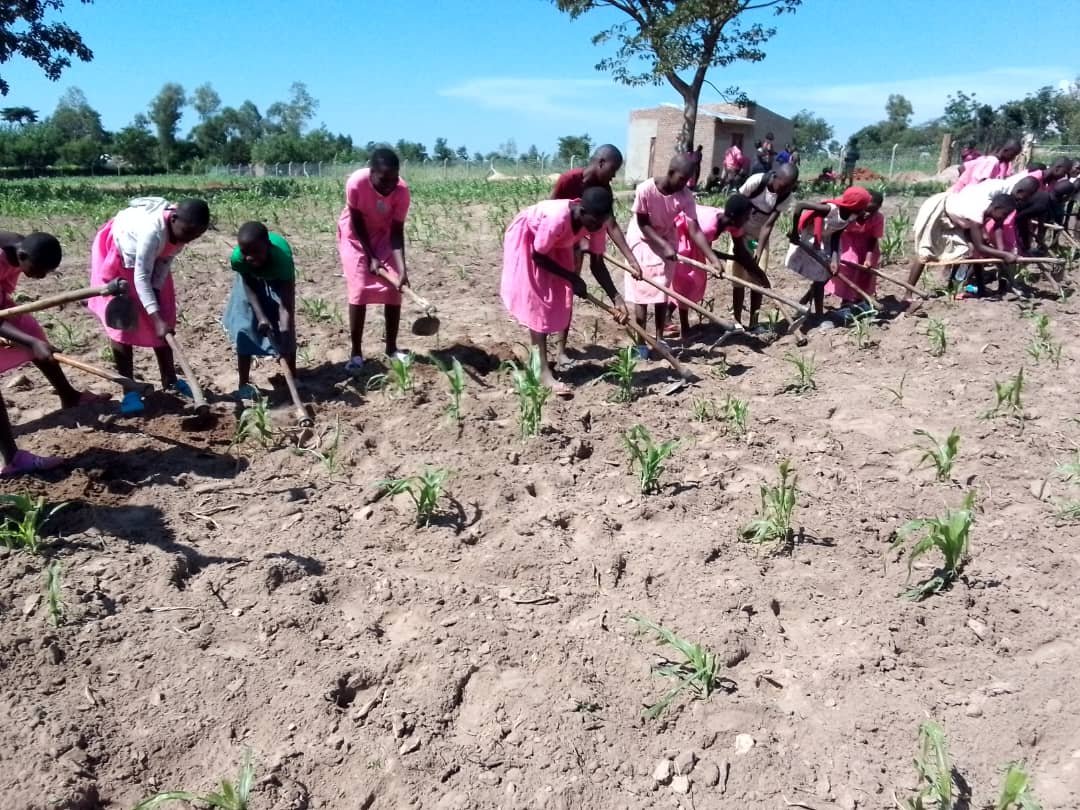
Sustainable Agriculture - School Farm -
Bicycles - Training
Projects & Activities
-

Kidera Primary School Farm
The question ‘How can we make the porridge program sustainable and self-sustaining?’ led to the concept of the school's own farm. The Sam Owori Trust provided land in Kidera, about 15 minutes from the school.
With the financial support of the Tyrolean state government, the land was fenced in, the school farm was set up and a borehole have been implemented. The schoolchildren are taught modern agricultural methods, including sowing, fertilisation, irrigation, harvesting and careful storage. The curriculum also includes the topic of ‘healthy nutrition’, nutritional values, wholemeal, etc. The knowledge acquired is taken home by the students and applied in their own gardens.
The school farm has become a central source of livelihood to secure school meals; any surplus produce is sold or given to the poor, widows and disadvantaged in the community.
-

Buffalo Bicycles
Ride a bike – means more than fun in Kidera. In order to cover the long distances to the school farm more easily and quickly, and to transport tools, harvests and heavy loads more easily, 85 robust Buffalo Bicycles have been provided. The use of the bikes seems sensible and the bikes are well maintained.
The valuable vehicles are stored in a newly built, secure, covered parking area on the school grounds. The students are trained by experienced mechanics and bicycle specialists – some of whom come from Austria – to maintain and care for the bicycles themselves. This not only ensures mobility, but also provides further training for the future.
A small workshop was built at the shelter and repairs can be carried out directly by the young people on the premises - with training by an expert from the village. A model for renting the bicycles for a small fee is also being considered.
-

Farmers Training
Increasing climate vulnerability, gender inequality, rising food prices, poverty, landlessness, lack of education and high birth rates are some of the main causes of food insecurity.
Drainage of wetlands, deforestation (annual deforestation rate 2%) cause further environmental problems.
An important approach to improving this situation is therefore agricultural education focussing on organic farming and the expansion of value chains for agricultural products.
During the implementation of the school farm, it became clear how important agricultural expertise is in order to adapt to the extreme weather conditions.
In recent months, experts have conducted training courses on the school farm as part of the Global Grant project and equipment has been made available for general use by the farmers and the school.